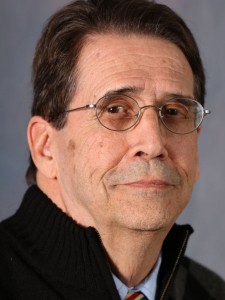By Mark Walker, Argus Leader

On the eve of Native American Day in South Dakota and near the anniversary of statehood, some of the state’s prominent Native Americans talked Sunday in Sioux Falls about tribal-state relations at statehood in 1889 compared to now.
Wayne White Wolf Evans summarized tribal-state relations in South Dakota during the course of almost 125 years as an “abusive relationship” the nine tribes can’t seem to escape.
To get out of an abusive relationship, he said, there has to be a power greater than the abuser.
Perhaps that power lies in the outstretched hands of the state’s residents, he said.
“Where does the tribe go to get this power, Congress?” Evans said. “State government is not going to do it. Maybe the citizens can do that.”
There’s a difference between now and 1889, said keynote speaker Frank Pommersheim during the event at the downtown library.
There has been some improvement, but not enough, said Pommersheim, a University of South Dakota Law School professor and tribal judge.
Resolution on issues such as land and political involvement still needs to be attained.
“Those lingering problems, which are very significant, over land and participation in the political process continue to exist, and we still, yet, from my point of view, have not had a meaningful statewide conversation about this that involves a significant number of state officials and tribal officials,” Pommersheim said.
Billy Mercer of Sioux Falls, who was among those attending Sunday’s forum, said the forum gave him a firm understanding of what happened during statehood at the county level.
He also took a moment to ask whether the mayor or any of the legislative candidates were attending the meeting.
He found out there were none and said that disappointed him.
“Nobody was here on the political level,” Mercer said. “They are quick to point out a park where alcoholic Native Americans are hanging out, but when you have people here who are Native American trying to discuss things, on a functional level, they’re not here. That’s discrimination.”
Assistant U.S. attorney in Sioux Falls J.R. LaPlante also was among those attending the event. He said having conversations about the tribal-state issues still needing to be overcome is critical.
“I think anytime you can look to litigation as a last resort … that’s good for us as taxpayers, I think it’s good for us as a state. I think it improves and increases understanding but also leads to more meaningful solutions,” LaPlante said.
